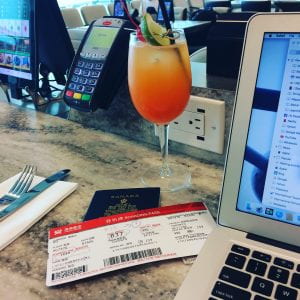I used to think…..
I was a well prepared and culturally competent leader.
I learned….
August 4th, 2017 I boarded a plane for Beijing, China. I decided to take a leap of faith and to leave the comfort of the Ontario educational system and accept a job in Beijing, China as an international school principal. I thought my experience, training, and education prepared me to apply the leadership skills I had acquired throughout my 24 year educational career. I had what I thought was a great deal of leadership experience, diversity and inclusion training and cultural understanding. I was more than ready to take on the role of Preschool/Elementary Principal at the Canadian International School of Beijing. I knew that I had a to learn about the culture of the country and the school but I would be alright with my strong leadership skills. WOW! Not only was I arrogant. I was wrong.
I struggled to figure out why my leadership skills were not working. Why was I upsetting parents? Why wouldn’t my Chinese teachers openly engage in dialogue when invited to give their opinion? Why was I being told yes by support staff only to be told a few days later it was not possible? What was I doing wrong? Failure after failure, frustration after frustration I continued.
What I discovered through leadership failures, humility, self-reflection and the cultural expectations of stakeholder groups was that I could use and apply some my acquired leadership skills but that I needed to develop or enhance new leadership skills to fit my current context.
It was not until our leadership team began the IB Leadership certification process during my first year, specifically the Culture and Context module, that I realized the missing links. Much, if not all, of the leadership training, literature, and information I had received was written from the perspective of a white middle aged male. None of this information or training ever referenced the need for cultural intelligence or cultural competency. We talked about building a school culture but not about understanding culture in the truest sense of the word and certainly not its impact on leadership.
Connected to this new understanding about the complexity of culture and the role it played in leadership I was beginning to realize that there was flexibility required in leadership style and approach with different stakeholder groups. Working with my Chinese teachers using Western leadership approach that believes in interdependence in which staff members and leaders to consult and share information openly was not effective as the Chinese culture believes that all individuals in society do not hold equal value and that there is a distinctive subordinate-superior relationship which must be accepted and respected (Hofstede, 2019). The Western approach of distributive leadership would not work in a culture that believed in in a more directive leadership approach.
Figure 1: Country Comparison Canada and China (Hofstede, 2019)
This AHA moment helped shift my thinking and approach interactions with staff, parents and students with a different lens. I began thinking more deeply about my own cultural intelligence and its impact on my leadership. I researched, asked questions and reflected on my practice. I learned from my mistakes and tried approaches that were more appropriate for the cultural context. There were still failures but at least I was learning. I learned about core and flex values and when and how to use and apply them. What I discovered is this journey towards cultural competence is difficult. It requires motivation, knowledge, reflection and changes in behaviour. This is what has led me to my research on cultural intelligence, a deep desire to change my leadership practice to lead more effectively in different cultural contexts.
I am not sure that this journey will ever end as we are living in a time of unprecedented change and uncertainty and we must continue to learn from and with each other. For now I will continue my journey hoping that I can find some wisdom along the way to make a difference.
What are you learning?
Resources
Ang, S., Dyne, L. V., Koh, C., Ng, K. Y., Templer, K. J., Tay, C., & Chandrasekar, N. A. (2007). Cultural intelligence: its measurement and effects on cultural judgment and decision making, cultural adaptation and task performance. Management and Organization Review, 3(3), 335–371. doi: 10.1111/j.1740-8784.2007.00082.x
Ang, S., Rockstuhl, T., & Tan, M. L. (2015). Cultural intelligence and competencies. International Encyclopedia of the Social & Behavioral Sciences, 433–439. doi: 10.1016/b978-0-08-097086-8.25050-2
Ang, S., & Van Dyne, L. (2015). Conceptualization of cultural intelligence definition, distinctiveness, and nomological network. In Handbook of cultural intelligence (pp. 23–42). New York, NY: Routledge.
Ang, S., & Van Dyne, L. (2015). Cultural intelligence scale (CQS) self-report. In Handbook of cultural intelligence (pp. 566–567). New York, NY: Routledge Appendix A
Ang, S., & Van Dyne, L. (2015). Cultural intelligence scale (CQS) observer report. In Handbook of cultural intelligence (pp. 568–570). New York, NY: Routledge Appendix B
https://www.hofstede-insights.com
Country Comparison. (n.d.). Retrieved September 13, 2019, from https://www.hofstede-insights.com/country-comparison/.
Middleton, Julia, Cultural intelligence: the competitive edge for leaders https://youtu.be/izeiRjUMau4



